Newly installed president vows overhaul of youth ranks to breathe new life into ailing Chinese game

Youngsters show off their skills at the CFA junior training center in Hainan province. New CFA President Song Kai says the governing body will focus on investing in youth development as it looks to revive soccer at all levels in China. LI TIANPING/FOR CHINA DAILY
China's new soccer chief, Song Kai, has put youth development at the top of his to-do list as the troubled domestic game hopes for brighter days ahead.
After being elected president of the Chinese Football Association last week, Song kicked off his tenure by announcing plans to rebuild the sport's youth development system from the bottom up — something his predecessors all tried and failed to do.
"To truly revitalize Chinese soccer we have to begin with youth training as the main task. The new CFA leadership will focus on youth development as the top priority under my helm," Song said on Sunday in Weifang, Shandong province at the national under-15 championship final, his first public appearance in his new role.
"It's time for Chinese soccer to embark on a 'Long March', with unwavering efforts at youth level to build a competitive youth competition system and improve the quality of coaching and training at the grassroots level."
Song, a 58-year-old former sports bureau director of Northeast China's Liaoning province, was elected at the CFA's 12th national congress on Oct 16.
Four vice-presidents, including women's soccer legend Sun Wen, were also elected. Sun was the only VP from the previous CFA leadership to be retained.
Focused on achieving success at elite level, the previous CFA leadership rolled out a series of quick-fix measures over the past decade designed to revive the ailing men's national program. These included the mandatory use of under-23 players in professional league games and the recruitment of naturalized talents to the national squad.
None of those policies, however, could turn around Team China's fortunes, as the squad's wait to qualify for the men's World Cup goes on.
Despite spending lavishly to hire world-class coaches such as Italian World Cup winner Marcello Lippi, and introducing a legion of Brazilian-born naturalized players led by Ai Kesen, aka Elkeson, the men's national team has failed to qualify for the World Cup for five straight editions since its sole appearance at the 2002 finals.

China lacks sufficient youth soccer competitions, both in terms of quantity and quality, reckons new CFA president Song Kai. XINHUA
China's women's team, which once dominated in Asia, is also on the decline, with stagnant talent development in the underfunded domestic league failing to keep up with the surging level of female soccer in the rest of the world.
Caught off guard by the pandemic, the country's once-flourishing top-tier Chinese Super League has been badly hamstrung by a financial crisis. Investors, mostly from the real estate, retail and e-commerce sectors, have abandoned many clubs, with former league champions Jiangsu Suning and Guangzhou Evergrande among the casualties.
It is all a far cry from the optimistic pronouncements of Song's predecessor, Chen Xuyuan, when he assumed office in August 2019.
Chen — along with former national team head coach Li Tie and former deputy sports minister Du Zhaocai — is now being investigated for bribery, according to the country's top anti-graft agency and provincial procuratorate in Hubei.
Song, however, has pledged to restore the game's tarnished image with a consistent, long-term approach to cultivating youth talent and reforming the professional leagues.
As part of the CFA's new grassroots project, Song has proposed increasing the wages of youth coaches, introducing more experienced trainers from abroad, and staging more continental and international youth tournaments.
"The level of our current crop of young players at high-school age is almost as competitive as Asian powerhouse Japan, but we need to provide them with enough competitions, both in terms of quality and quantity, to accelerate their development," said Song.
"Nowadays, there just aren't sufficient competitions and the ones we have aren't intense enough."
As the latest evidence of the quality in the country's underage ranks, Team China edged Japan 4-2 on penalties, following a scoreless draw in regulation, to win the inaugural East Asia Football Federation U15 boys' championship last month. Success-starved soccer fans back home seized on the result as a hopeful sign after years of disappointment from the senior team.
To support the underage game, the new CFA leadership has also promised to tilt its revenue distribution toward youth training programs at all levels.
According to a CFA financial report published last week, 46.05 million yuan ($6.29 million), less than 8 percent of its annual revenue, was spent on youth training and competitions in 2022, a drop of 60 million yuan from 2021.
To stimulate the competitive instincts of homegrown stars, the CSL should also reconsider its current limit on imported players to allow more foreigners to vie with local players for minutes in the domestic league, reckons Song.
That proposal, however, has been met with a mixed reaction from pundits and observers alike, who point to the ongoing financial struggles of clubs as a major stumbling block.
"To allow clubs to sign more imports without a limit would perhaps make the overall financial situation even worse within the league, with some clubs already involved in legal disputes with foreign players over unpaid salaries," said Han Qiaosheng, a soccer commentator with China Central Television.
 China to Recruit 67,000 Rural Teachers This Year
China to Recruit 67,000 Rural Teachers This Year 60,000 Youngsters Benefit from Eye Care Project of China's Red Cross Society
60,000 Youngsters Benefit from Eye Care Project of China's Red Cross Society China Tops World in Number of World Natural Heritage Sites
China Tops World in Number of World Natural Heritage Sites Foreign diplomats impressed by traditional culture, high
Foreign diplomats impressed by traditional culture, highFinnish carrier suspends Estonia flights after GPS interference prevents 2 landings
 COPENHAGEN, Denmark (AP) — Finland’s national carrier Finnair said Monday it is temporarily suspendi ...[Detailed]
COPENHAGEN, Denmark (AP) — Finland’s national carrier Finnair said Monday it is temporarily suspendi ...[Detailed]Blueberries Enter Harvest Season in China's Guizhou
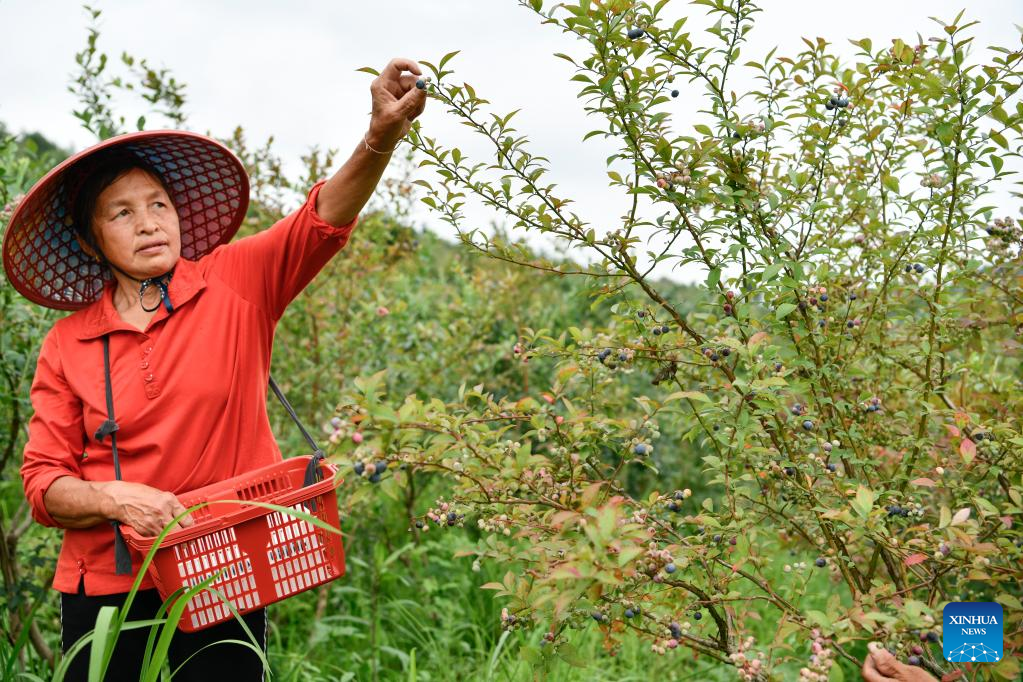 Contact Us HomeNewsHighlightACWF NewsSocietyWom ...[Detailed]
Contact Us HomeNewsHighlightACWF NewsSocietyWom ...[Detailed]China Creates over 6.5 Million Urban Jobs in H1
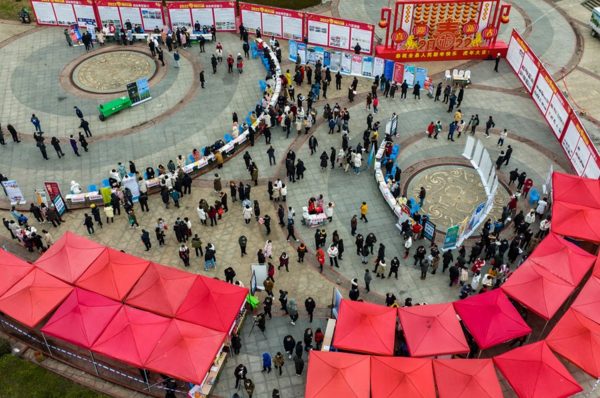 Contact Us HomeNewsHighlightACWF NewsSocietyWom ...[Detailed]
Contact Us HomeNewsHighlightACWF NewsSocietyWom ...[Detailed]Children Attend Event as 'Little Architects' Ahead of Int'l Children's Day in Xi'an
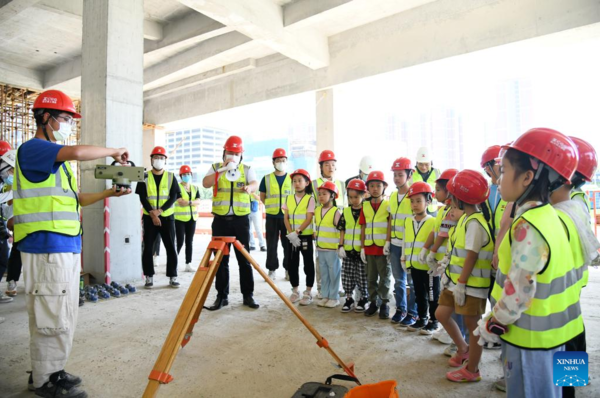 Contact Us HomeNewsHighlightACWF NewsSocietyWom ...[Detailed]
Contact Us HomeNewsHighlightACWF NewsSocietyWom ...[Detailed]50 migrants reported missing and 9 rescued after their boat overturns off Spanish Atlantic island
 MADRID (AP) — About 50 migrants were missing after their boat overturned some 100 kilometers (60 mil ...[Detailed]
MADRID (AP) — About 50 migrants were missing after their boat overturned some 100 kilometers (60 mil ...[Detailed]China's Higher Education Enrollment Rate Reaches 57.8 Pct
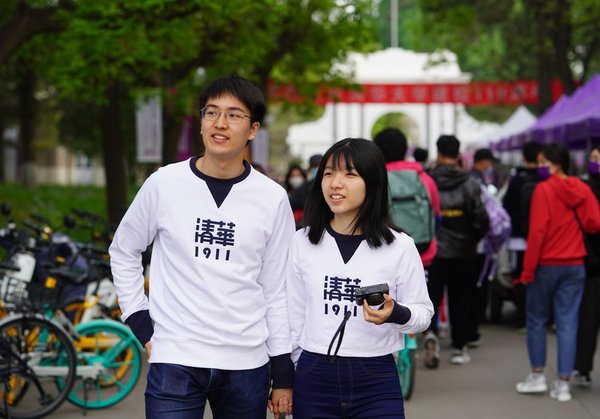 Contact Us HomeNewsHighlightACWF NewsSocietyWom ...[Detailed]
Contact Us HomeNewsHighlightACWF NewsSocietyWom ...[Detailed]Maritime Day of China Marked in NE China's Liaoning
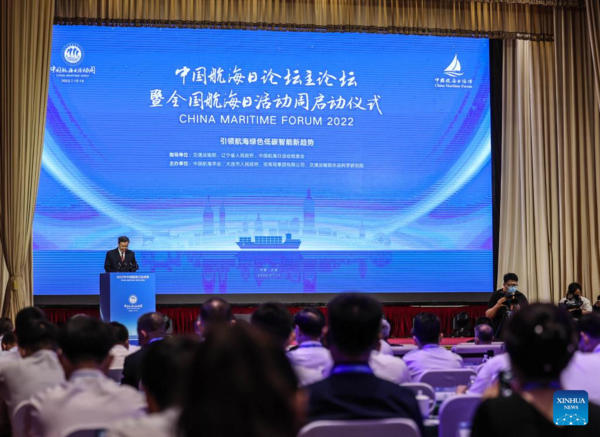 Contact Us HomeNewsHighlightACWF NewsSocietyWom ...[Detailed]
Contact Us HomeNewsHighlightACWF NewsSocietyWom ...[Detailed]China's Higher Education Enrollment Rate Reaches 57.8 Pct
 Contact Us HomeNewsHighlightACWF NewsSocietyWom ...[Detailed]
Contact Us HomeNewsHighlightACWF NewsSocietyWom ...[Detailed]Hamas official says no agreement with Israel if war continues in Gaza
 An official of the Palestinian Islamic Resistance Movement (Hamas) said on Sunday that the movement ...[Detailed]
An official of the Palestinian Islamic Resistance Movement (Hamas) said on Sunday that the movement ...[Detailed]Chinese Lawmakers Deliberate Report on Boosting Children's Health
 Contact Us HomeNewsHighlightACWF NewsSocietyWom ...[Detailed]
Contact Us HomeNewsHighlightACWF NewsSocietyWom ...[Detailed]Music and martial arts witness China

Grassroots Healthcare Institutions Increasingly Attractive to Medical Talent: Authority
